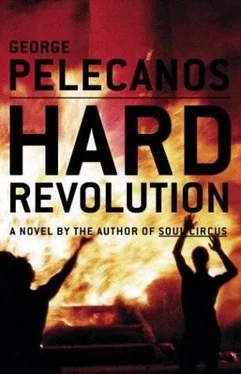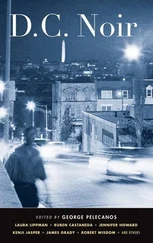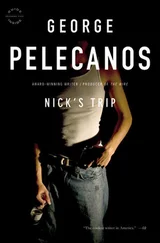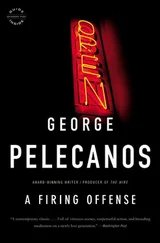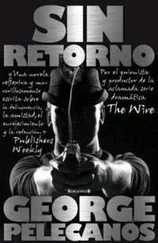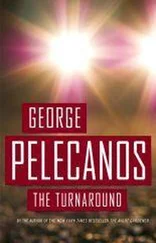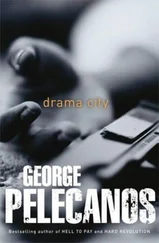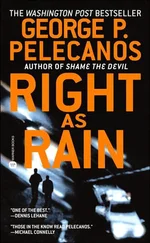“You hear those two old birds in there, talkin’ about Dr. King?” said Peters.
“I heard ’em,” said Strange.
“They’re afraid, is what it is.”
Strange looked across the bench at his blond-haired partner. “Now you’re gonna tell me you’re not.”
“Not in that way. Look, if these people out here don’t get some kind of relief, it’s all gonna boil over. I don’t look forward to that kind of violence. I’m afraid of it, okay? But those old guys, what they’re afraid of is the change itself. I’m talkin’ about how their world is gonna change forever when all of this gets settled once and for all. Me, I welcome that kind of change.”
“You welcome it, huh?”
“You know what I mean.”
“Okay. But here’s something for you to remember while you’re bein’ so broad-minded. Come revolution time? You go out there and greet these people with open arms? Yours is gonna be the first throat they cut.”
“Something’s coming, is all I’m saying. You can’t deny it. It’s like trying to stop the sunrise.”
Strange nodded tightly. Living conditions had deteriorated as poverty had grown throughout the decade. At present, only one out of three students in the city graduated from public high schools, resulting in a huge unskilled workforce released into a white-collar, government-industry town that yielded few jobs and little in the way of prospects. For many, the promise of the civil rights movement seemed broken. And if the ghetto was thought of by its residents as a kind of prison, then its police force was seen as the prison guard. This perception was exacerbated by the fact that, in D.C., roughly three out of four citizens were black, while four out of five police officers were white. No wonder that crime, civil disobedience, and unmasked hatred were on the rise.
The government, meanwhile, was making eleventh-hour efforts to ease the tension. President Johnson had appointed Walter Washington, longtime head of the National Capital Housing Authority, to be D.C.’s first black mayor. Mayor Washington then brought in Patrick V. Murphy, former chief of the Syracuse police, and put him in the newly created position of director of public safety. Murphy, who was perceived to be more sympathetic to the race problem than Police Chief John Layton, was charged with overseeing both the MPD and the fire department. Immediately, Murphy promoted blacks to higher ranks and stepped up efforts to recruit rookie black police officers. This did not make Murphy popular with senators and congressmen of a certain stripe, who feared that blacks were getting too much power in the federally controlled nation’s capital. Nevertheless, a new opportunity had presented itself, and black men and women began to sign on in numbers for the uniform, badge, and gun. Derek Strange and Lydell Blue were two of many who had heard the call.
Disenfranchised Washingtonians, however, considered these efforts to be too little, too late. The race divide remained the nation’s powder keg, and its ultimate explosion seemed destined to occur in D.C. In August of ’67, arson and minor riots had broken out along 7th and 14th Streets, with rocks and bottles thrown at firemen attempting to extinguish the flames. Since then, unrest and disorder had become almost weekly occurrences. Stokely Carmichael, the high-profile former spokesman for the Student Nonviolent Coordinating Committee, had moved to town. H. Rap Brown was being extradited from New Orleans to Richmond and ultimately to Maryland ’s Eastern Shore, where he faced charges of arson and inciting a riot in the town of Cambridge. Black Panthers and other Black Nationalist factions had become active and entrenched around the city. And Dr. Martin Luther King Jr. was promising, some said threatening, to bring his Poor People’s Campaign, a massive rally, to Washington on April 22. But first he had to deal with Memphis.
Days earlier, King had led a six-thousand-strong march down Beale Street in support of an ongoing garbage workers’ strike in Memphis, where almost all the refuse men were black. Rioting and violence had ensued, ending in serious injuries, scores of arrests, and the death of a sixteen-year-old boy. Witnesses claimed the boy, Larry Payne, had been shot by a white policeman after putting his hands up in surrender. Subsequently, a prominent group of radicals had called for the annexation of five southern states with the intention of forming a separate black nation, warning that the country would have “no chance of surviving” if their demands were not met. A visibly worn down President Johnson stated that rioting could only serve to divide the people, while presidential candidate Richard Nixon declared that “the nation must be prepared to meet force with force if necessary.” King had pledged that the Memphis incident would not deter his plans to march in D.C. in April.
“ Troy?”
“What?”
“Think we could get through one afternoon without talkin’ about all this bullshit for a change?”
“It’s not important to you?”
“I hear enough about it in my world every day. I just don’t need to be discussin’ it all day at work.”
Discussing it with a white man, Strange might have added. But there wasn’t any need to say it aloud. Peters was smart enough to read between the lines.
Strange had been riding with Peters for a while now, but it had only taken one day to know his history. Peters was twenty-nine years old, a devout Christian married to his college sweetheart, Patty, who worked for an American Indian-rights group on Jefferson Place in Northwest and drove a VW Bug with a flower-shaped McCarthy sticker affixed to its hood. Peters had strong feelings on civil rights, women’s rights, organized labor, and the war in Vietnam. On all of these issues, Peters believed he was on the side of the angels.
Right or not, his opinions often came off as speeches, like he was up in front of one of those poli-sci classes he had taken back in school. Strange sometimes felt it was his duty to bring Peters back down to reality. Let him know in his own way that while all black people were looking for equality, few were looking to be accepted, or loved, by whites. It was, in fact, just about the furthest thing from black folks’ minds. This was something that many of these well-meaning types could not seem to understand.
One thing about Peters, he was different for sure from most of the cops Strange had come to know. A Carolina boy who’d graduated from Princeton, joined the Peace Corps, then signed up for the MPD, he was one of several high-profile recruits with similar backgrounds who’d come to the force with Ivy League degrees in hand, hoping to change the system from the inside. There had even been a New York Times article written on these men in which Peters had been quoted, and a Look magazine spread that featured a photograph of his freckly, blue-eyed face. He claimed to be embarrassed by all the attention, and Strange had no doubt that he was. Certainly his notoriety and well-heeled upbringing did not endear him to many of his fellow officers, black or white. To them he was just playing dress-up until he got bored and moved on to something else.
Not that Peters was soft. Boys tended to be built bigger and tougher in the South, and Peters was a southern boy all the way. From what Strange had seen so far, he was unafraid to enter into a conflict and had no physical problem subduing suspects on the street. More important, Strange was secure in the belief that Peters would have his back in the event of a situation.
So Peters was all right. He wasn’t Strange’s boy or anything like that, but he was fine. Strange just wished he didn’t try so hard to endear himself to his “black” partner all the time. It got tiring sometimes, listening to the beat of his pure heart.
Читать дальше
